Three Challenges to Croatia's EU Membership
Adelina Marini, February 19, 2013
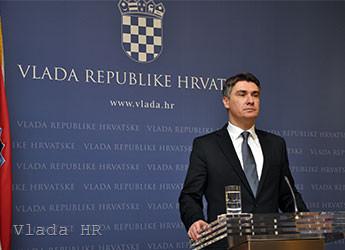 With the 1st of July approaching, when the accession of Croatia to the EU is planned, the challenges before the entry of the 28th member state become clearer. And they are not directly related to the implementation of the remaining commitments the European Commission outlined in October and with which Croatia is on track. There are domestic and external challenges which endanger the adequate benefit from accession. Those are the unresolved bilateral issues with Slovenia; the series of elections which will take place right before July 1st (local, for European Parliament); and the economic situation in the country.
With the 1st of July approaching, when the accession of Croatia to the EU is planned, the challenges before the entry of the 28th member state become clearer. And they are not directly related to the implementation of the remaining commitments the European Commission outlined in October and with which Croatia is on track. There are domestic and external challenges which endanger the adequate benefit from accession. Those are the unresolved bilateral issues with Slovenia; the series of elections which will take place right before July 1st (local, for European Parliament); and the economic situation in the country.
The ten tasks
First of the ten tasks the Commission put forward to Croatia as a prerequisite for successful membership is privatisation of shipyards. A problem which has been standing in the relations of Croatia with the EU for many years and which also stands between the taxpayers and the government. One of the reasons why Zagreb has not managed to achieve its goals for a decrease of the budget deficit in 2012 was precisely the debt of shipyards which the current government claims was hidden by the previous cabinet. According to the report of the government, the problem with privatisation of Brodosplit, a shipyard based in Split, will be resolved by the end of February. The final changes to the privatisation contract and the restructuring programme have been sent to the European Commission for approval on January 31st. In case the Commission is positive, the contract will be signed.
According to the Croatian weekly magazine Actual, however, Brodosplit is the biggest issue. According to the agreement between Croatia and the EU, Zagreb has to complete the privatisation of the shipyards by the accession on July 1st. Should it not do so, all the state aid the enterprises have received so far will have to be returned, amounting to over 15 billion kunas (circa 2 billion euros). Brodosplit was for many years the main exporter with which hundreds of smaller companies were connected and with thousands of workers. Currently those who work in the enterprise are 3500 people, according to the magazine, while the number of unemployed in the second largest city in Croatia are around 20 thousand. Actual writes that the public costs for the restructuring of the enterprise only in the next five years will be 1.5 billion kunas.
A huge problem for the treasury is another shipyard as well - May 3rd - for which there still is no certain buyer. The deadline the government has set for solving it is the first quarter of the year. In the end of last year (December 4th), a potential buyer sent an official letter of intent, but still an official proposal is awaited. The investor has already done a deep study of the situation of the shipyard in Rijeka and has adopted a draft of a programme for restructuring. In January, unofficial consultations have been initiated with the Commission on the programme and initial talks with the potential buyer have also started. During the government meeting on February 6th the Minister of Economy Ivan Vrdoljak announced that the investor has proposed to buy over a million shares at the price of 1 kuna each, which amounts to 83.3% of the main capital.
In the framework of the first quarter the problem with the third shipyard - Brodotrogir - must be solved, the cabinet plans. Currently, consultations and exchange of information with the Commission are taking place, after which is expected the official adoption of the programme for restructuring of the enterprise for which there is a buyer, as well, the February report claims.
The second task by Brussels was Croatia to increase the efficiency of the judiciary and to reduce the number of unsolved cases which Zagreb reports as implemented. The third task is also complete which is related to ensuring the necessary legislation to assist enforcement of court rulings and to reduce the number of solved cases that are still not enforced. The report says that in September 2012 there were totally 113 378 unsolved cases, while in December they have dropped to 95 482 cases which is a reduction of 15.78%.
The creation of a commission for conflict of interest resolution is the fourth task which the government reports as implemented. On January 25th have been appointed a president and members of the commission. Dalija Oreskovic has been appointed a president of the commission. Conflict of interest was present in the proposal by Romanian MEP Monica Macovei for amendments to the report of Libor Roucek, a rapporteur on Croatia. With her proposal, the former minister of justice of Romania demands the establishment of a post-monitoring mechanism for Croatia to monitor precisely conflict of interest resolution. The report will be voted in the Foreign Affairs Committee of the Europarliament on February 19th.
A very important task, number five, is also reported as complete and that is a new law for the right of access to information. The final text of the legislation has been 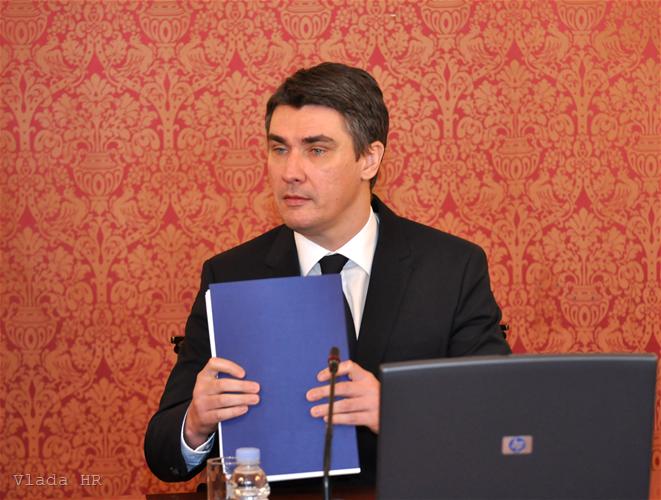 approved by the government at its meeting on February 6th. Minister of State Administration Arsen Bauk said when presenting the text that the law will be a good tool to fight corruption. Prime Minister Zoran Milanovic, however, corrected him saying that it was about transparency not necessarily fight against corruption. It is about transparency and the right of citizens to have access to information about the work of public services and those who are in power. "It is about a civilisational trend of an open administration. The most competitive and rich countries have the most open administrations. Predominantly the Nordic states", Mr Milanovic added, recalling that the changes will not happen over night.
approved by the government at its meeting on February 6th. Minister of State Administration Arsen Bauk said when presenting the text that the law will be a good tool to fight corruption. Prime Minister Zoran Milanovic, however, corrected him saying that it was about transparency not necessarily fight against corruption. It is about transparency and the right of citizens to have access to information about the work of public services and those who are in power. "It is about a civilisational trend of an open administration. The most competitive and rich countries have the most open administrations. Predominantly the Nordic states", Mr Milanovic added, recalling that the changes will not happen over night.
And the sixth task in the report is completed which was related to the implementation of the law on police. Still under way is the building of border checkpoints in Klek and Zaton Doli, as well as the Neum corridor. The latter is a very sensitive issue because it concerns Bosnia and Herzegovina as well. The ministers of foreign affairs of the two countries held a successful trilateral meeting in Brussels last week during which a transit passage of goods and animals was proposed to continue under a special procedure and according to the European quality standards. This will ensure Bosnia's access to the Croatian port of Ploce.
The last three tasks are also implemented: appointing more border police, adopting a migration strategy and increasing the administrative capacity for translation into Croatian of the EU acquis.
The bilateral disputes with Slovenia
As is visible from the tasks and their implementation, there is no risk that could stem from them. Unlike Bulgaria and Romania in 2006, no matter some single calls for post-accession monitoring, Croatia is much better prepared for membership. The biggest risk stems from the unresolved post-Yugoslav issues with its northern neighbour Slovenia. Ljubljana has put as a precondition in the very beginning the solving of the dispute about old savings in the already non-existent Ljubljanska banka to start the ratification procedure. In the summer last year, the governments of the two countries appointed two financial experts to find an expert solution to the problem. By the end of the year, however, a solution was not found.
Then the political crisis in Slovenia has begun, threatening with early elections. Such a development would endanger significantly the ratification process. Facing the risk of such a scenario, the Croatian government has softened its position and claims readiness to concessions if Slovenia, in turn, does the same. The Slovenians also stated their political will to find a solution. As on February 22nd the main coalition partner - the party of pensioners of Foreign Minister Karl Erjavec - will leave the coalition, Prime Minister Janez Jansa announced in the weekend that he had appointed a member of his cabinet for a chief negotiator on the issue of Ljubljanska banka. According to him, the negotiations are already in their final stage and are moving to higher political level.
In October, in an interview with this website, the first Deputy Prime Minister and Minister of Foreign and European Affairs hoped that the problem would not reach the prime-ministerial level. No longer will be worked on foreign ministers' level, but at a level of representatives of the prime ministers, Jansa was quoted saying on Saturday by Croatian media. On March 10th he will meet his Croatian counterpart Zoran Milanovic. However, there is still no information what options does the agreement 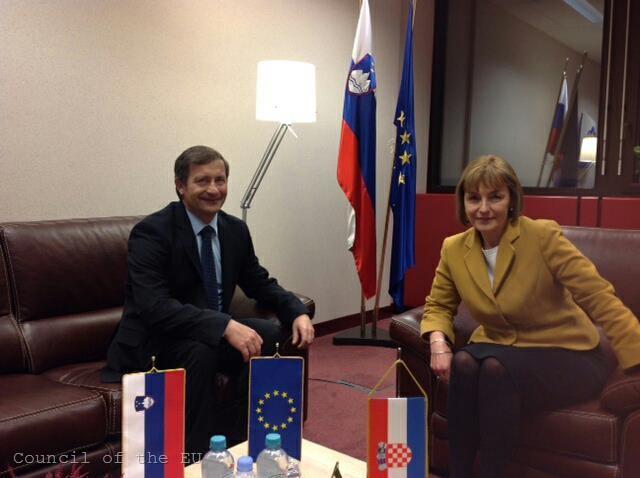 reached earlier by the financial experts and the foreign ministers of the two countries contain, as Ms Pusic refused to reveal any details even to the members of Croatian Sabor.
reached earlier by the financial experts and the foreign ministers of the two countries contain, as Ms Pusic refused to reveal any details even to the members of Croatian Sabor.
From her statements after the Foreign Affairs Council in Brussels on February 18th it becomes clear that Croatia is entirely in the dark how will the events unfold from here on. Mr Pusic was unable to say whether and when she will meet the appointed by Jansa secretary of state nor could she confirm the possibilities for a meeting of the prime minsters of March 10th, and even less about the chances the ratification procedure to be completed by the end of next months as there were such hopes during her talks with Karl Erjavec. On February 19th she said though that she has a scheduled telephone conversation with Jansa's appointee. Both countries admitted recently that the problem between them is political.
In a commentary [in Croatian language] with the Croatian online edition tportal Vuk Peresic writes that the difference of genesis of the Croatian-Slovenian conflict and the EU can be summarised as a difference between the idea of absolute sovereignty and the imperative that all disputes can be solved rationally and if necessary at the cost of some concessions from national sovereignty. The sovereignty of states is viewed by the political elites in the two countries as sacred and on this altar they are ready to sacrifice human rights and even lives. Europe, as it seems, however, is not the Radetsky march, but rather the Ninth Symphony by Beethoven with some of John Lennon's Imagine in it, the journalist writes.
It seems that under the pressure of time the two countries will forcefully apply the most impressive European philosophy - that of compromise. The issue of Ljubljanska banka has demonstrated very clearly that there are occasions when no one wins or no one loses. Depends on the point of view. The more the 1st of July 2013 approaches, 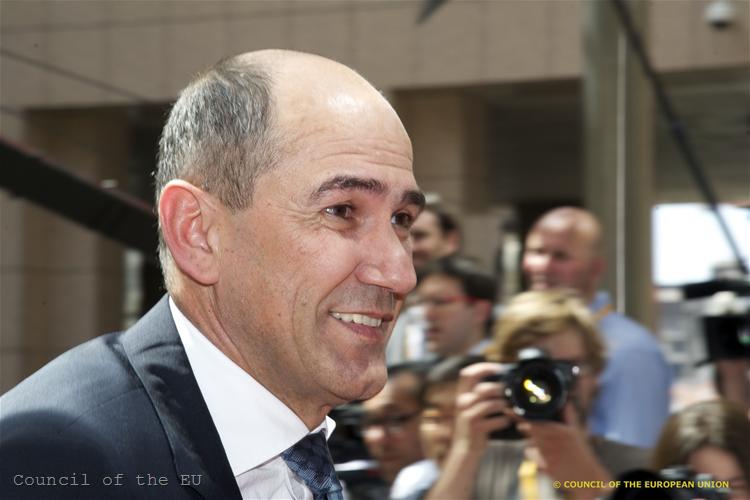 however, the more politicians in Slovenia realise that this time they have went too far and have pulled the bow string too much, while those in Croatia acknowledge that the price of the past is not worth the price of the future. What the coming days and weeks will show is whether the two countries have realised all this a little bit too late. For now it seems Slovenia will succeed in ratifying the treaty in time before the government crashes entirely. But the lessons for the EU remain huge. Croatia vows that it does not want to be a Slovenia for the next candidates for European membership from former Yugoslavia. It is important, though, the EU not to allow this vow to be tested in practise.
however, the more politicians in Slovenia realise that this time they have went too far and have pulled the bow string too much, while those in Croatia acknowledge that the price of the past is not worth the price of the future. What the coming days and weeks will show is whether the two countries have realised all this a little bit too late. For now it seems Slovenia will succeed in ratifying the treaty in time before the government crashes entirely. But the lessons for the EU remain huge. Croatia vows that it does not want to be a Slovenia for the next candidates for European membership from former Yugoslavia. It is important, though, the EU not to allow this vow to be tested in practise.
Elections
In May, local elections will take place in the country the battle for which has started yet in the end of December. The internal party fights consume a lot of energy, especially for the parties in the ruling Kukuriku (cock-a-doodle-doo) coalition, but the inter-party fights for voters are yet to begin. And although there are two months left until the voting, the campaign has begun and has a visible impact on the reform efforts of the cabinet which, in my opinion, ended before the end of 2012 when the Kukuriku celebrated one year in power. The tough economic situation, the fast rise of unemployment and public debt, the downgrade of the credit rating by two of the big credit rating agencies, and also the discontent of the people forced the government to slow down reforms and to bet on certain.
This is the biggest challenge because it will have severe consequences not only in the short term, but in the long run as well. The economic woes of many EU countries and the eurozone show clearly that unreformed and non-reforming countries sooner or later reach out for external help which leads to even more painful reforms than initially planned. Zoran Milanovic's government had a strong start, the actions of Finance Minister Slavko Linic caused admiration and approval both inside and outside of the country. But he seems more and more isolated. During a special news conference on February 1st when he commented on the Moody's decision to downgrade Croatia's credit raring to the junk level Slavko Linic passed the responsibility to the cabinet saying that the government would from now on decide on further spending cuts.
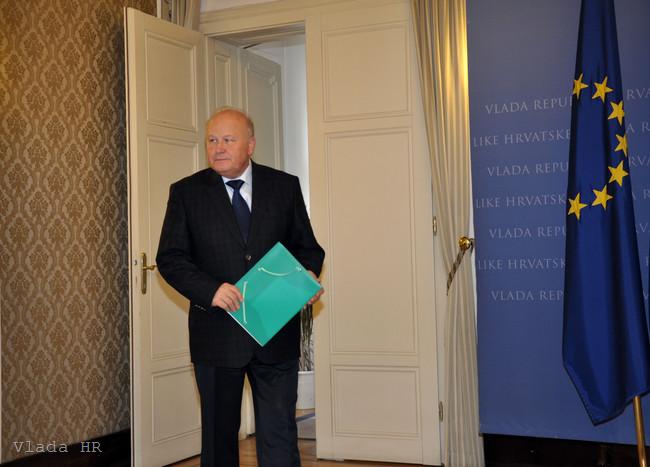 And the 2013 budget was just adopted when a talk emerged that it will be revised. According to Mr Linic, in Croatia tax policies change very slowly. All this shows that from now on the government will act under the pressure of upcoming elections and social discontent. Separately from the local elections, partial elections for the European Parliament are to take place too. The financial effort will be huge against the backdrop of the very weak outcome because the regular European elections will take place in 2014. This means that the elected this year representatives of Croatia will have a mandate of only one year. It also means that the country will have to spend the same amount of money for another voting in only a year's time.
And the 2013 budget was just adopted when a talk emerged that it will be revised. According to Mr Linic, in Croatia tax policies change very slowly. All this shows that from now on the government will act under the pressure of upcoming elections and social discontent. Separately from the local elections, partial elections for the European Parliament are to take place too. The financial effort will be huge against the backdrop of the very weak outcome because the regular European elections will take place in 2014. This means that the elected this year representatives of Croatia will have a mandate of only one year. It also means that the country will have to spend the same amount of money for another voting in only a year's time.
The price of elections rises the question of whether elections 2 in 1 should be organised - local elections and for members of the European Parliament to take place in a single day. Prime Minister Zoran Milanovic believes, however, that if there are elections 2 in 1 there is a risk the EU issues not to be discussed at all. Whenever the elections, they will be another hole through which political energy will leak.
This government was a ray of hope that the transition in Croatia has been completed and the time has come for genuine reforms that will deliver the country to the next level - from the level of stately and institutional building and political primitivism to the level of economic restructuring, farewell to state ownership and opening of the government to full transparency. For now it seems that only the opening to full transparency will remain. All the rest is about to continue as before. As said in an interview for this website Zoran Aralica, an economic analyst, the biggest challenge for Croatia after joining the EU will be to bid farewell to communist mentality. All evidence lead to confirmation of this conclusion.
 Kolinda Grabar-Kitarovic | © KGK
Kolinda Grabar-Kitarovic | © KGK Jozo Rados | © European Parliament
Jozo Rados | © European Parliament Aleksandar Vucic, Andrej Plenkovic | © Vlada RH
Aleksandar Vucic, Andrej Plenkovic | © Vlada RH